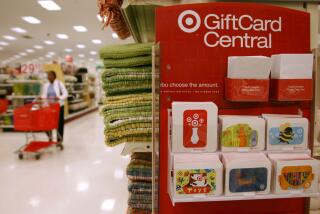Why credit card rewards are targeting convenience spending
If you’re spending a lot on convenience — whether in the form of grocery delivery, ride-hailing or meal delivery — your credit card wants to reward you for it, while encouraging you to spend more.
Consider these recent offerings:
• Chase announced in January that for a limited time, eligible card members can get free memberships to DoorDash’s subscription food delivery service, DashPass, valued at $9.99 a month. The Chase Sapphire Reserve card also now offers a complimentary one-year Lyft Pink subscription, which comes with several perks.
• The Capital One Walmart Rewards Mastercard, launched in October, offers its highest rewards, 5% back, on purchases made online and through the Walmart app, which includes Walmart Grocery Pickup and Delivery.
• The recently revamped Uber Credit Card now offers 5% back on Uber and Uber Eats.
• The new Apple Card offers 3% back on Uber and Uber Eats when you use the card through Apple Pay.
Although it might seem as if credit cards are acting like your new best friend, experts say the rewards structures are designed to get you to use the cards more freely. Convenience, in other words, can come at a cost.
Credit card issuers are tapping into a popular spending category. A June 2019 survey commissioned by Finder.com, a data comparison website, found that 74% of Americans spend just over $4,000 a year on conveniences, including food deliveries and ride-hailing.
“Consumers are spending more money on services that provide more convenience, and card issuers are recognizing this is a growing category of spending, so they offer consumers higher rewards levels in an attempt to make the card more frequently used,” said Ron Shevlin, director of research at Cornerstone Advisors, a banking consultancy.
Shevlin noted that to fully optimize some of these deals, consumers may need to update the card they have connected to the apps so that it’s the one that offers the highest rewards rate on that service.
“Now you have to actively manage which card you use for each transaction,” Shevlin said.
Morris said it’s also important to pay your bills in full each month to avoid accumulating debt and paying interest, which would cancel out the benefit of any rewards earned.
“These rewards are all meant to promulgate a purchase, so the consumer needs to be aware of what they should and shouldn’t spend,” he said.
Consumers should be careful not to overspend, said Kit Yarrow, consumer psychologist and professor emerita at Golden Gate University. “The easier it is to pay, the easier it is to spend,” she said, which means if you use a ride-hailing service and pay for it on your phone without pulling out your wallet, it can feel like you haven’t even spent anything, when, of course, you have.
With many of these convenience-oriented apps and services, “it’s just so easy to buy,” Yarrow said. “People need to implement other methods to understand the costs,” such as reviewing their credit card statement each month.
Palmer writes for the personal finance site Nerdwallet.
More to Read
Inside the business of entertainment
The Wide Shot brings you news, analysis and insights on everything from streaming wars to production — and what it all means for the future.
You may occasionally receive promotional content from the Los Angeles Times.









